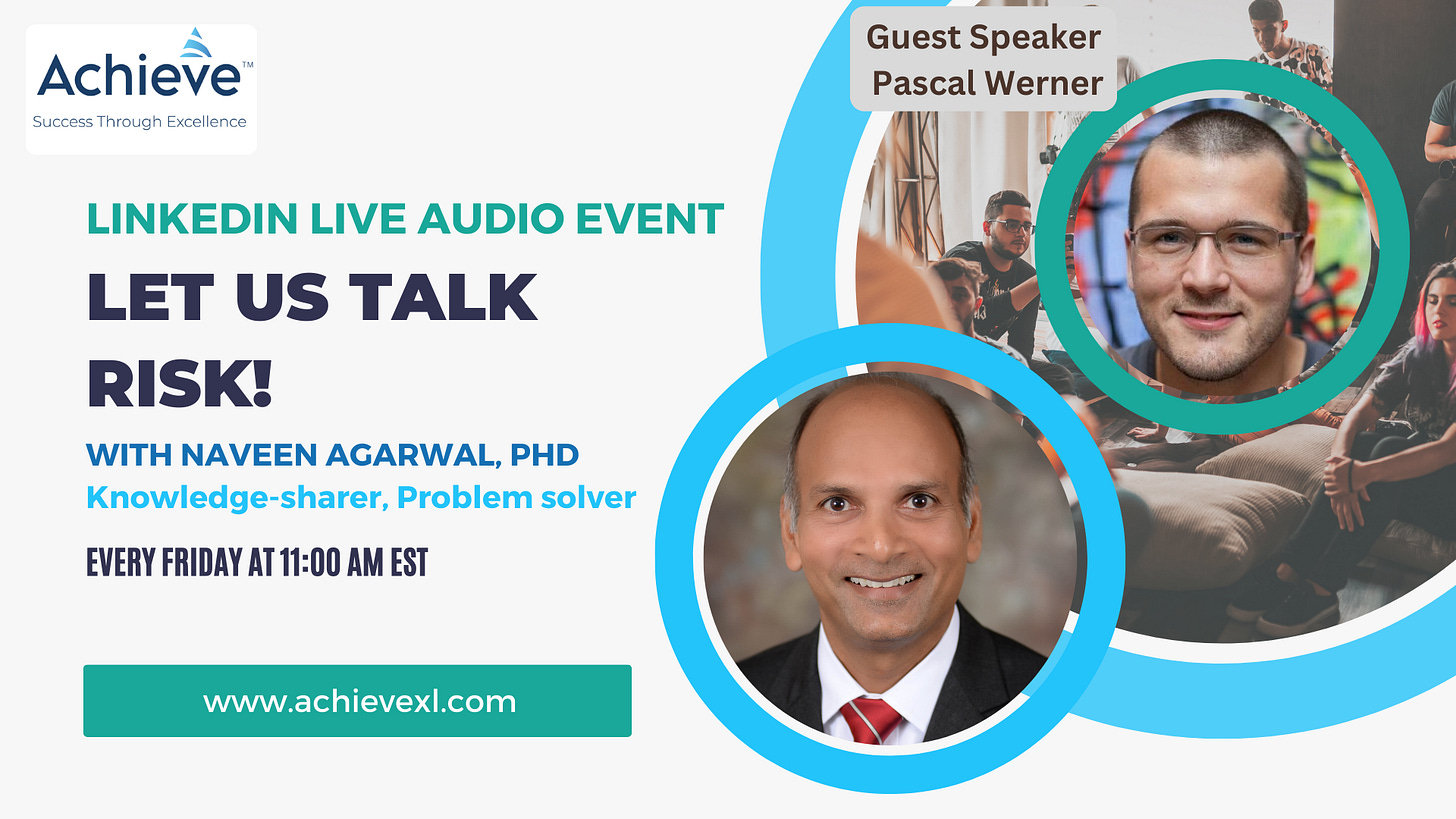Challenges and opportunities for digital technologies in medical applications
Insights from a Let's Talk Risk! conversation with Pascal Werner.
Note: this article highlights key insights gained from a conversation with Pascal Werner as part of the Let’s Talk Risk! with Dr. Naveen Agarwal series on LinkedIn. Listen to the full recording of the discussion below.
Digital technologies are being rapidly deployed in medical applications. Buzzwords such as AI/ML1, SaMD2 and Digital Therapeutics are fast becoming a part of our vocabulary in the medical device and the broader healthcare space. While there is new excitement about the potential to solve some of our most challenging medical problems, there is also a lot of uncertainty in the regulatory approach to devices using based on these technologies.
Pascal Werner shares this enthusiasm for digital technologies in this Let’s Talk Risk! conversation, while also highlighting challenges associated with their application in medical devices.
There is a lot of buzz today because the technology exists. Everyone has a phone in their hand that can do a lot more than a computer could do not that long ago. Why just use it just for pictures, why not also to improve your health?
Digital therapeutics, or DTx, a new category of medicine, deliver medical interventions directly to patients using evidence-based, clinically evaluated software to treat, manage, and prevent a broad spectrum of disease and disorders3. Rapidly evolving reimbursement pathways, especially in Germany are supporting development and adoption of DTx for management of chronic conditions such as obesity, insomnia and depression4. Traditional therapeutic interventions can be supported by DTx in these chronic conditions where patients may need guidance and encouragement for behavior modification and lifestyle changes.
On the other hand, there is a lot of uncertainty in risk classification of DTx and SaMD in different markets across Europe. One medical application classified under risk Class I in one market, may be considered to be under risk Class II or IIa in another market. Additionally, there are strict regulatory requirements for data integrity and privacy, which add to the increasing challenges in commercialization and adoption of new DTx and SaMD applications.
In the United States, FDA has published a policy for device software functions and mobile medical applications5, which clarifies that only those software functions that meet the definition of a medical device and whose malfunction could pose a risk to a patient’s safety are subject to the agency’s regulatory oversight. Many of the commercially available health apps that simply aim to support a healthy lifestyle are not considered a medical device, or may pose a very low risk to public health. FDA is signaling a policy of exercising enforcement discretion for many of these medical apps based on their risk level. FDA has also established a Digital Health Center of Excellence6 to build partnerships, share knowledge and develop an innovative regulatory approach. They are also setting up a Digital Health Advisory Committee7 to support safe and effective regulation of digital health technologies while encouraging innovation.
Certainly, these are exciting times for innovation in digital health. But there are also significant challenges in bringing them to market due to considerable uncertainty in the regulatory framework, which is also rapidly evolving across the world. Developers of medical apps will need to build a broad range of competencies to be successful.
Listen to the recording of our conversation above.
About Pascal Werner
Pascal Werner is a freelance consultant advising startups and small/medium enterprises focusing on digital therapeutics, digital health, AI and SaMD in developing a successful regulatory strategy supported by a robust quality management system and technical documentation. His expertise in software development and entrepreneurial thinking, combined with his knowledge of laws and regulations, allows Pascal to offer comprehensive regulatory services. He holds Masters degrees in Biomedical Engineering from Germany and Malaysia.
About Let’s Talk Risk! with Dr. Naveen Agarwal
Let’s Talk Risk! with Dr. Naveen Agarwal is a weekly live audio event on LinkedIn, where we talk about risk management related topics in a casual, informal way. Join us at 11:00 am EST every Friday on LinkedIn.
Disclaimer
Information and insights presented in this article are for educational purposes only. Views expressed by all speakers are their own and do not reflect those of their respective organizations.
AI/ML - Artificial Intelligence/Machine Learning
SaMD - Software as a Medical Device
Understanding DTx - Digital Therapeutics Alliance, a non-profit trade association of industry leaders and stakeholdes.
DiGA directory, BfArM (Germany’s Federal Institute for Drugs and Medical Devices)
FDA: Policy for Device Software Functions and Mobile Medical Applications, Issued September 28, 2022.




